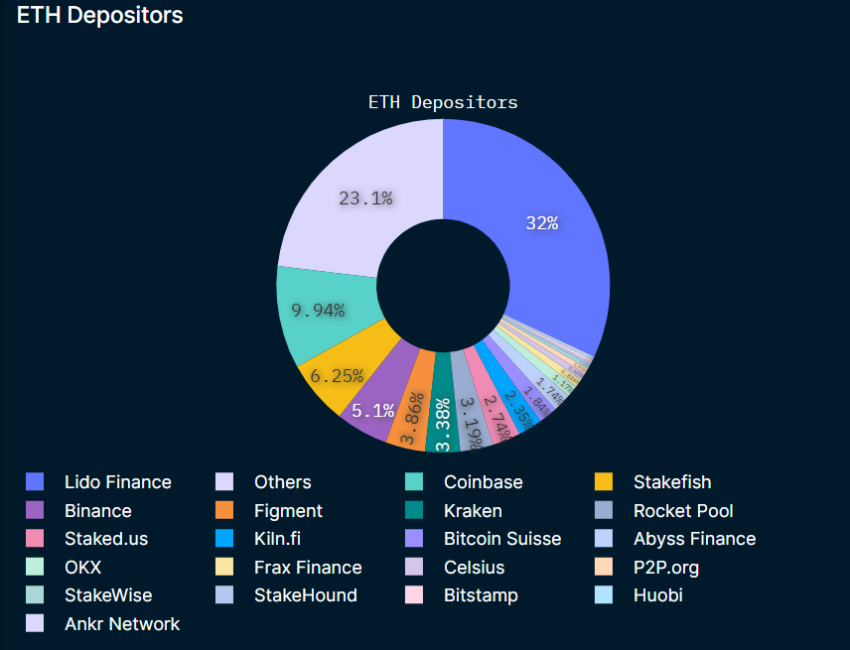
[ad_1]
Coinbase, a leading cryptocurrency exchange, has ceased its staking services for retail customers in California, New Jersey, South Carolina, and Wisconsin following orders from state regulators.
This move comes amidst legal proceedings initiated by regulators in June. However, the company remains committed to advocating for the rights of American citizens to stake their digital assets, despite the regulatory obstacles.
Coinbase Staking Faces Regulatory Challenges
In a blog post on July 14, Coinbase announced the suspension of its staking services in the aforementioned states.
The firm is recognized as one of the most significant institutional staking service providers, accounting for almost 10% of all staked Ethereum, per data from Nansen’s dashboard. This places Coinbase ahead of competitors such as Binance and Kraken.
Read more: What Is Crypto Staking? A Guide to Earning Passive Income

Last month, Coinbase faced a lawsuit from the United States Securities and Exchange Commission (SEC) for allegedly violating federal securities law with its operations.
Additionally, ten US states initiated legal action against Coinbase. Alabama, Illinois, Kentucky, Maryland, New Jersey, Vermont, and Washington, among many others, claimed that Coinbase’s retail staking services constituted securities under state law.
Crypto Staking Doesn’t Meet Security Criteria
Coinbase has staunchly disputed the accusations that its staking services qualify as securities. The firm has argued that staking does not meet the security criteria under the US Securities Act or the Howey Test.
The company maintains that staking is essential to the cryptocurrency economy. It is a process that ensures the security of blockchain networks and allows for their smooth operation. Coinbase notes that nearly every major blockchain depends on staking due to its openness, security, and environmental friendliness.
Read more: 8 Best Crypto Staking Platforms You Can Trust
Coinbase also expressed concern that a US ban on staking would restrict Americans’ participation in the cryptocurrency economy. This could potentially compel them to use less secure offshore services.
Coinbase is not alone in its regulatory struggles over staking services. Kraken, another US-based firm, paid the SEC a $30 million fine in February and suspended its staking services for American customers.
Despite these regulatory challenges, Coinbase’s stocks recently reached a yearly high of over $100. This surge followed the company’s partnerships with several traditional financial institutions filing for a Bitcoin Spot ETF. Many of these firms, including BlackRock and Fidelity, have entered a surveillance-sharing agreement with the cryptocurrency exchange.
Disclaimer
In adherence to the Trust Project guidelines, BeInCrypto is committed to unbiased, transparent reporting. This news article aims to provide accurate, timely information. However, readers are advised to verify facts independently and consult with a professional before making any decisions based on this content.
[ad_2]
Source link





Be the first to comment